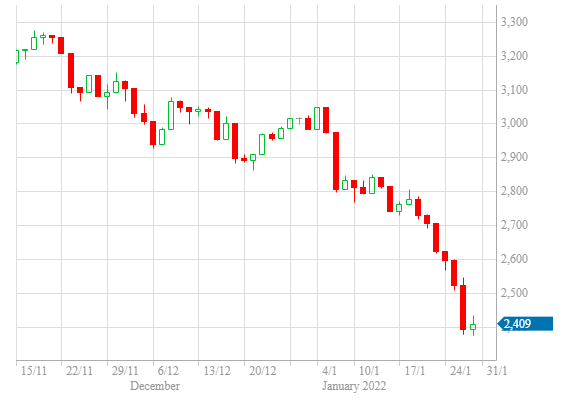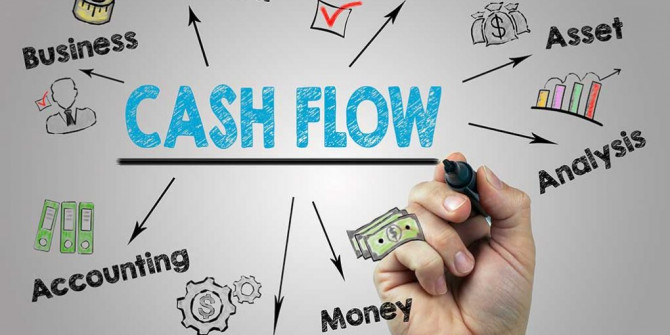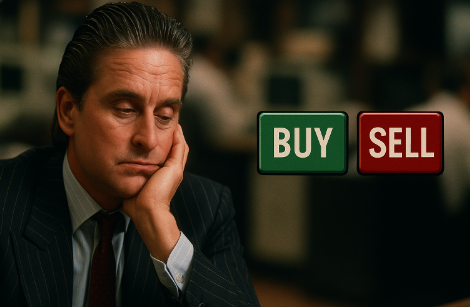
The Aussie market, as measured by the S&P All Ordinaries Index, entered a ‘technical correction’ this week, having fallen more than 10% from the record high it hit at the start of the year. Small cap stocks have fared worse, down about 14% over the same period of time according the ASX Small Ords.
The situation for tech investors is even worse.
The S&P ASX All Technology Index, which tracks the performance of the market’s leading technology companies, is now firmly in bear market territory having dropped around 26% from where it sat in mid-November:

So what’s going on?
The basic answer is that sentiment has changed for the worse. Higher inflation, and hence the threat of rising interest rates, is perhaps the biggest factor, but a possible war in Ukraine, an ongoing pandemic and a tapering from the US Federal Reserve are likely having an impact too.
It’s perhaps also fair to say that many companies — especially technology companies — were previously trading at very high levels. Prices that assumed very strong and enduring growth. And when stocks are ‘priced for perfection‘, it doesn’t take much disappointing news to send investors rushing for the exit.
It’s a good reminder that valuation matters. As Charlie Munger puts it:
“No matter how wonderful a business is, it’s not worth an infinite price.”
He goes on to explain that for him and Warren, “We have to have a price that makes sense and gives a margin of safety considering the normal vicissitudes of life.”
The good news is that if you have indeed purchased your investments at a sensible price, these losses will prove transitory in the fullness of time.
At the same time, if you paid silly prices for your shares — especially for those representing low quality, speculative businesses — you could well be facing the prospect of permanent capital loss. Holding firm, or worse, buying more, could just be compounding your initial error.
So in terms of what you should do in the face of falling prices, the answer depends on what you’re holding and how the current price compares to a reasonable estimate of fair value. And this needs to also be considered relative to alternate investments — opportunity cost matters.
Howard Marks dives into this idea in more detail in one of his memos to clients, and we’d encourage you to have a read if you’re wrestling with the decision of whether you should sell out, or not. (Thanks to Strawman member Slideup who posted this during the week).
Click here to read the memo.
Finally, it’s worth remembering that what we are presently experiencing is entirely normal. The market has always climbed a wall of worry, and long term gains are achieved in spite of regular (and sometimes extreme) pull-backs.
Some recent tweets from Morgan Housel and Ben Carlson demonstrate this perfectly (click on the image for a better view).
Remember, market crashes are seen as a risk when looking ahead, but are always seen as an opportunity in hindsight. Try and act in a way that will make you smile when you look back on this period in another few years.
© 2022 Strawman Pty Ltd. All rights reserved.
| Privacy Policy | Terms of Service |
ACN: 610 908 211





